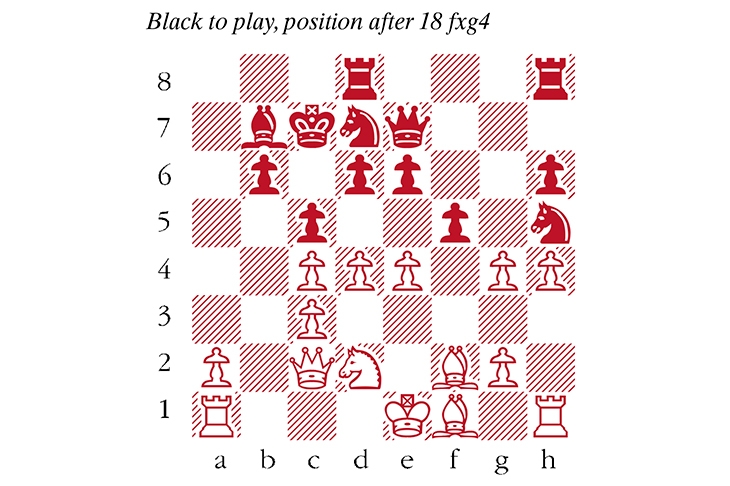Cars, computers and cadavers: taking them apart is normally reserved for experts and the pathologically curious. In his new book, The Moves that Matter, Jonathan Rowson takes a scalpel to the game of chess itself, and finds abundant meaning in its cultural, psychological and metaphorical aspects. Or as he puts it: ‘Chess is just a game in the way that the heart is just a muscle.’ It’s ambitious stuff, but we’re in good hands. Dr Rowson is a three-time British champion (2004-2006), writer, philosopher and co-founder of Perspectiva, a research institute that examines the relationship between complex global challenges and the inner lives of human beings.
The Moves that Matter is unusual in that Rowson has written a chess book with a general audience in mind. There are no diagrams and precious few chess moves; rather, what matters (and what fascinates) are the motives, personal and social, that guide our play. Rowson breathes life into these abstract ideas — I too have experienced the ‘cracking twig’ that warns of imminent danger at the board. ‘Every game is a place and time, and we share it with a figurative flatmate we have to live with for hours that can feel like years: someone who wants to damage your furniture, steal your precious objects and occupy your bedroom, before killing you.’ This rings true, as does Rowson’s subtle analysis of the discipline and nature of concentration, along with the profound freedom which goes with it. Valuable insights like those vastly outnumber my occasional protest that, in Freud’s words, ‘sometimes a cigar is just a cigar’.
The prismatic quality of chess is reflected in the book’s unusual structure, with 64 vignettes along eight thematic axes. Diverse themes like ‘Thinking and Feeling’ and ‘Truth and Beauty’ are interwoven with autobiography and an affectionate depiction of the game’s subculture. The result is a passionate and authentic apologia for the game’s worth. Equally, there is an honest nod to its limitations, and Rowson gives a poignant account of turning towards a life outside of professional chess.
Rowson described this game, a stylish positional squeeze played in the final round of the 2006 British Championship as ‘probably the best that I have ever played’. He approached it with great conviction, partly inspired by a curious coincidence the day before, when a young man sat in front on the bus wearing an orange T-shirt with the words ‘Parker: Aim High!’
Jonathan Parker-Jonathan Rowson
Swansea 2006
1 d4 Nf6 2 c4 e6 3 Nc3 Bb4 4 Nf3 b6 5 Bg5 Bb7 6 e3 h6 7 Bh4 Bxc3+ 8 bxc3 d6 9 Nd2 Nbd7 10 f3 Qe7 11 e4 g5 12 Bf2 c5 13 Qa4 Nh5 14 h4 O-O-O! A well-judged sacrifice. White can grab a pawn, but gets no attack. 15 Qxa7 Kc7 16 Qa4 f5 17 Qc2 g4 18 fxg4 (see diagram) 18… Nhf6! Skilful footwork, recovering a pawn in the optimal fashion. 19 Bd3 Nxg4 20 Bg1 f4 21 Nf3 e5 22 h5 Qf7 23 Nh4 Qxh5 24 Rh3 Rhe8 25 Nf5 Qg5 26 d5 h5 27 Qb2 Ra8 The decisive regrouping begins. 28 Be2 Ra6 29 Bf3 Rea8 30 Qb3 Ra3 31 Qb2 R8a4 32 Bd1 Ra8 33 Bf3 R3a5 34 Rh1 R8a6 35 Rh3 Bc8 36 Rh1 Nf8 37 Nh4 Nh7 38 Qd2 Bd7 39 Kf1 Nhf6 40 Ke2 Ra4 White resigns Black has complete control, and will soon begin to harvest pawns (e.g. 41 Kd3 b5!)






Comments